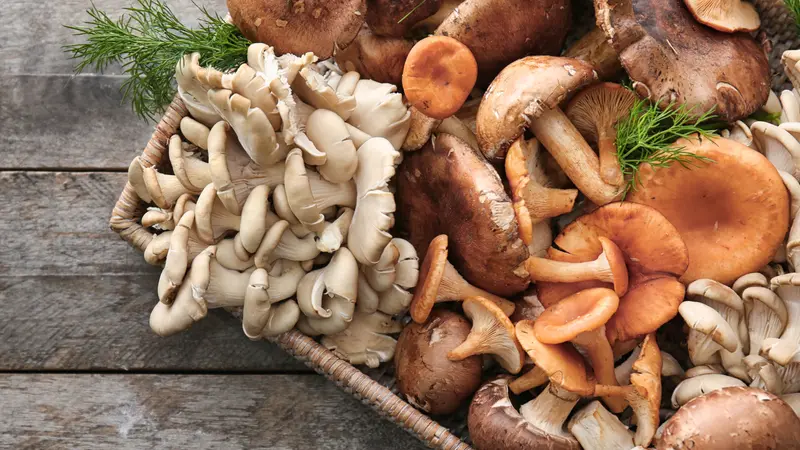

Food, Farming and Nutrition

Food, Farming and Nutrition
Love Them or Hate Them, Mushrooms Are Good for Your Health
It has long been known that fruits and vegetables can reduce the risk of chronic diseases while boosting the immune system. Recently, a fungus has shown potential in staving off cancer. Many love them and many don’t, but mushrooms have been found to have numerous health benefits. Edible mushrooms are rich in bioactive compounds and contain selenium, vitamins B, C, D, niacin, thiamin, and riboflavin, and powerful antioxidants.
The largest meta-analysis ever performed on mushrooms and cancer was recently published in the journal Advances in Nutrition. Seventeen studies were evaluated from 1966 to 2020, which included over 19,500 cancer patients. The study found that people who ate 18 grams of mushrooms per day, or two medium-sized mushrooms, had a 45% lower risk of cancer than those who did not.
According to researchers, mushrooms are the highest dietary source of a potent antioxidant and cellular protector called ergothioneine, a sulfur-containing amino acid. Antioxidants have been found to help protect against oxidative stress and lower the risk of cancer. Higher blood levels of ergothioneine have been associated with a lower risk of cardiovascular disease and death, according to a 2020 study in Heart. Strong evidence was also found that daily consumption of mushrooms reduced the risk of breast cancer by 45%.
A study detailed in the book Chris Beat Cancer, by Chris Wark, found that Chinese women who consumed an average of 15 mushrooms and 15 cups of green tea per month had a 90% reduced risk of developing breast cancer compared to women who didn’t consume green tea or mushrooms regularly. Wark himself was diagnosed with colon cancer in 2003. He decided to opt out of chemotherapy and used nutrition and natural therapies to heal his illness. Wark ate mushrooms every day in what he describes as his Giant Cancer-Fighting Salad.
Other research has determined that shiitake, oyster, and maitake mushrooms have higher amounts of ergothioneine than white button, cremini, and portobello mushrooms, but that people who incorporated any variety of mushrooms into their daily diets had a lower risk of cancer. More studies are needed to better understand the mechanisms and to determine how specific cancers can by impacted.
REFERENCES
Wark, C. (n.d.). Two mushrooms per day could reduce cancer risk by 45%. Chris Beat Cancer. https://www.chrisbeatcancer.com/two-mushrooms-per-day-reduce-cancer-risk/


 By
By







